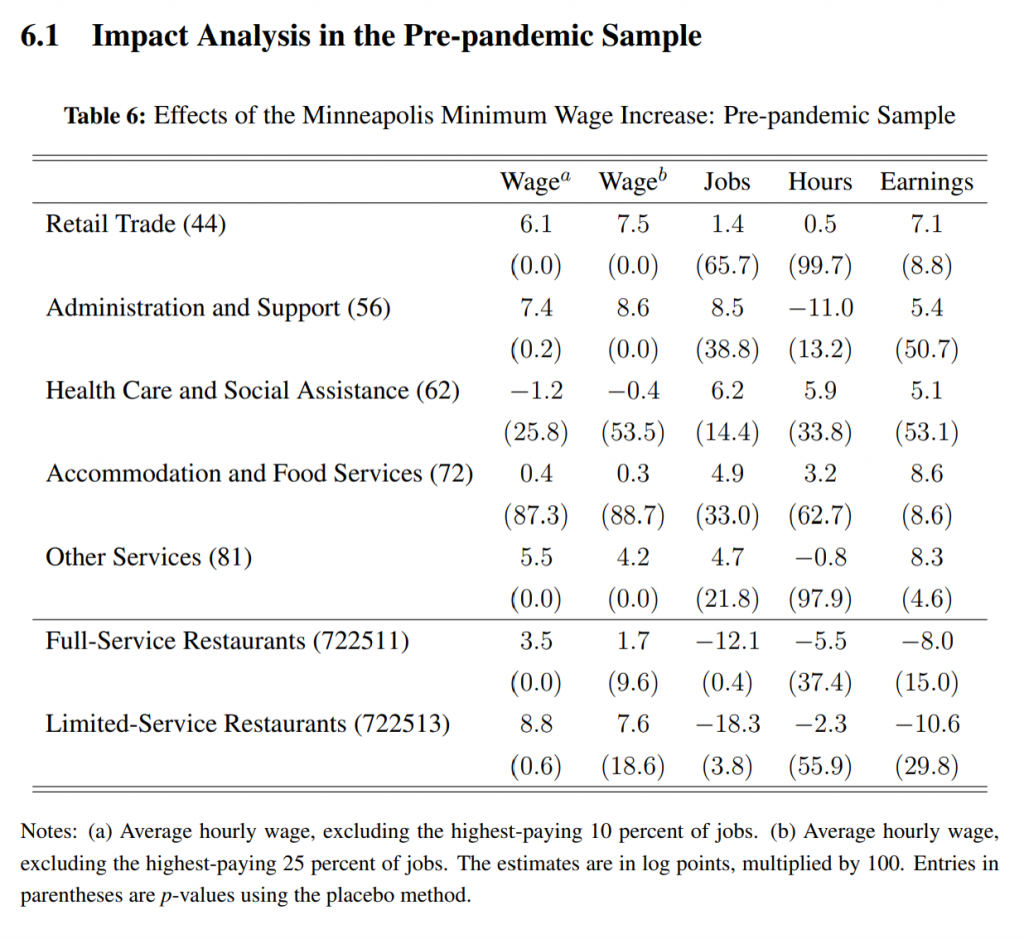Few small business owners were surprised to learn the minimum wage had negative consequences for employment in the restaurant industry.
In early November, the Federal Reserve Bank of Minneapolis published a study on the effects to date from Minneapolis’s minimum wage mandate. Few small business owners were surprised to learn the minimum wage had negative consequences for employment in the restaurant industry. The full report can be found at this page.

The study covered effects from 2018-2019 and, separately, 2020. Employment losses in the restaurant industry were found as the Minneapolis minimum hourly wage increased to $10.25 in 2018 and $11 in 2019 for small businesses (100 or fewer employees) and $11.25 in 2018 and $12.25 in 2019 for large businesses (101 or more employees).
Estimated job losses worsen significantly when 2020 data is included, but the report’s authors caution against over-reliance on those findings because they do not separate out effects from the pandemic and civil unrest.
In 2017, after a protracted fight, the Minneapolis City Council voted to raise the city’s minimum wage to $15 per hour. The increase took effect in stages, with large employers (over 100 employees) mandated to pay $15 per hour starting in 2022, and small employers (100 or fewer employees) mandated to pay $15 per hour starting in 2024.
St. Paul followed suit with a city minimum wage in 2018, with “macro” employers (10,001+ employees) reaching $15 per hour in 2022, large businesses (101 to 10,000) employees reaching it in 2023, small businesses (6-100) in 2025 and “micro” businesses (5 or fewer) in 2027.
Much ink was spilled on both sides of the minimum wage fight. Far left organizations like 15 Now, SEIU, Democrat Socialists of America and the Socialist Alternative hailed it as a victory for workers over corporate interests.
An ideologically diverse group of opponents warned against job losses and income disparities, including restaurant workers who were unsuccessful in amending the city ordinances to include some form of tiered wage for their industry.
This month’s findings somewhat echo recent studies of state and municipal minimum wage increases, which tend to conclude that small increases in low-income worker pay are offset by reduced opportunities for workers at that end of the pay scale.
In 2014, the Democratic-controlled Legislature and then-Gov. Mark Dayton mandated an increase in the state’s minimum wage to $10 per hour. The state wage is indexed to inflation, and will grow to $10.33 per hour for most employers on January 1, 2022.
The Minneapolis Fed will continue to report annually on effects of the Minneapolis minimum wage increase through 2028.
